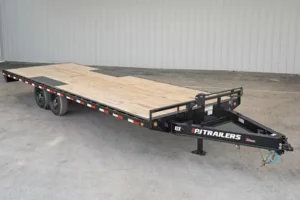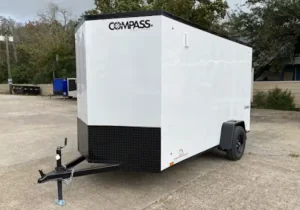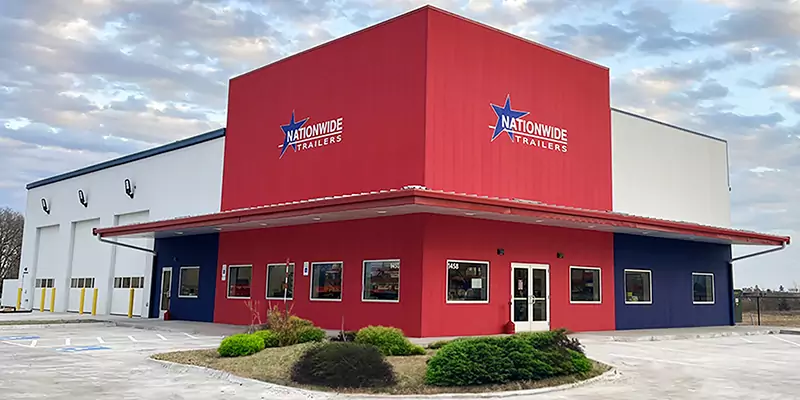
In the bustling city of Des Moines, Iowa, the need for versatile and reliable transportation solutions has never been higher. Enter the utility trailer—a trusty companion for homeowners, small business owners, and adventurers alike. Whether you’re hauling landscaping equipment, embarking on a cross-country move, or simply need to transport your latest DIY project, choosing the right utility trailer is crucial. In this guide, we’ll walk you through the essentials of selecting a utility trailer that perfectly aligns with your needs.
The Many Benefits of Utility Trailers
Utility trailers are the unsung heroes of the transportation world. Their versatility makes them indispensable for numerous tasks, from hauling garden debris to transporting furniture. Beyond their practical use, utility trailers provide cost-effective solutions when compared to hiring movers or renting a truck. Their open design often means they’re lighter and easier to tow than enclosed trailers, making them accessible for a wide range of vehicle sizes.
Another great advantage of owning a utility trailer is the potential for customization. You can equip them with racks, storage boxes, or even convert them into mobile workstations. This flexibility ensures that a utility trailer and accessories can adapt to your changing needs over time. For business owners in Des Moines, this means greater efficiency and the ability to respond quickly to business demands.
For those who frequently venture outdoors, utility trailers offer ample space for recreational gear like bikes, kayaks, and camping equipment. Their durability ensures that they can withstand rugged terrains, making them perfect for your next adventure.
Understanding Different Types of Utility Trailers
When it comes to utility trailers, one size doesn’t fit all. Understanding the different types available can help you make an informed choice.
Open Utility Trailers are the most common type, featuring a simple flatbed design. These trailers are ideal for transporting bulky items that don’t require protection from the elements. Their open design allows for easy loading and unloading, making them popular for landscaping and construction work.
Enclosed Utility Trailers, on the other hand, provide complete protection from weather conditions. They’re perfect for transporting valuable or sensitive items, offering security and peace of mind. These trailers are often used by businesses that need to transport equipment or inventory safely.
Flatbed Trailers are a versatile choice, characterized by their open, flat design. They are perfect for carrying vehicles, large machinery, or oversized loads. Their low bed height simplifies loading and unloading, which is a huge advantage for heavy equipment transport.
Each type of trailer has its own set of benefits, so consider what you’ll be using the trailer for before making a decision.
Determining Your Hauling Needs
Before you invest in a utility trailer, assess your specific hauling needs. Consider the types of items you’ll be transporting and how often you’ll use the trailer. Will you be hauling heavy machinery, lightweight garden supplies, or personal items? This will influence the size and weight capacity you require.
Knowing the weight of the loads you’ll be transporting is crucial. Overloading a trailer can lead to accidents and damage both the trailer and your vehicle. Most trailers have a weight limit, so ensure that the one you choose can handle the maximum weight you plan to haul.
Additionally, consider the distances you’ll be traveling. If you’re frequently making long trips, you’ll want a trailer that offers stability and durability on the road. A handy tip is to consult with experts at Nationwide Trailers, who can guide you in assessing your hauling needs accurately.
Exploring Features and Customization Options
Utility trailers today come equipped with a variety of features that enhance functionality. These features not only improve convenience but also ensure safety and efficiency.
Ramp Gates: For easy loading and unloading of heavy equipment, look for trailers with built-in ramp gates. These ramps can be lowered to create a smooth transition from the ground to the trailer bed.
Tie-Down Points: Secure your load with tie-down points. These are essential for ensuring that your cargo stays in place during transit, preventing damage to both your goods and the trailer.
Electric Brakes: If you’re transporting heavy loads, trailers with electric brakes are a must. They provide additional stopping power and improve safety on the road.
Budgeting Tips for Buying a Utility Trailer
Purchasing a utility trailer is an investment, and budgeting wisely is essential. Begin by setting a budget that considers both the initial purchase price and any additional costs such as registration, insurance, and maintenance.
While it may be tempting to opt for the cheapest option available, remember that quality and durability should be top priorities. A well-built trailer may cost more upfront, but it will likely save you money in the long run by reducing repair costs and extending the trailer’s lifespan.
At Nationwide Trailers, you can explore various financing options, making it easier to get the trailer you need without breaking the bank. Their competitive pricing and flexible payment plans are designed to accommodate every buyer, ensuring you get great value for your investment.
Conclusion Making an Informed Decision
Choosing the right utility trailer involves careful consideration of your needs, budget, and future plans. By understanding the different types of trailers, assessing your hauling requirements, and exploring customization options, you can make an informed choice that will serve you well for years to come.
For those in Des Moines, Iowa, looking to take the next step, visit Nationwide Trailers to discover a wide selection of high-quality utility trailers that suit your needs. Their expert team is ready to assist you, ensuring that you find the perfect match for your endeavors. Discover our trailers and start your next adventure today!




